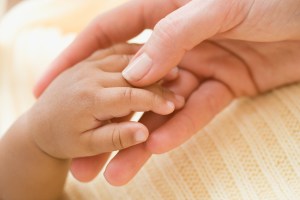
© JGI/Blend Images/Corbis
In 1897, in a book on suicide, French sociologist Emile Durkheim suggested that being a parent made people less likely to take their own lives. And in the time since, a few studies have explored this hypothesis, consistently finding that women who had children were less likely to take their own lives, and that the more children a woman had, the more her risk for suicide decreased. A new study published this week in the Canadian Medical Association Journal, adds to those earlier findings. In the study, Dr. Chun-Yuh Yang, a public health researcher at Taiwan’s Kaohsiung Medical University examines the relationship between suicide and motherhood in a population of more than 1.2 million women from Taiwan, where suicide is the ninth leading cause of death among women. (In Taiwan, the suicide rate is 9.7 per 100,000 women, according to 2007 data. In the U.S., as of 2006, the suicide rate was 4.6 per 100,000 women.) Yang found that, the protective quality of motherhood—and more specifically, the decrease in suicide risk for each additional child—was more significant than reported in previous research.
Yang studied 20 years of data on 1,292,462 women who had given birth at least once, finding that, in keeping with previous studies, there was “a clear tendency toward decreasing suicide rates with increasing number of children…” In fact, compared with women who had one child, those who had two had a 40% lower risk for suicide, and those who had three or more had a 60% lower risk for suicide, according to the study.
Yang speculates that the protective power of parenthood may be rooted in the fact that children can enhance a mother’s feeling of self-worth, and that “motherhood may enhance social networks, provide a positive social role and potentially important source of social support, especially over the long term.”

